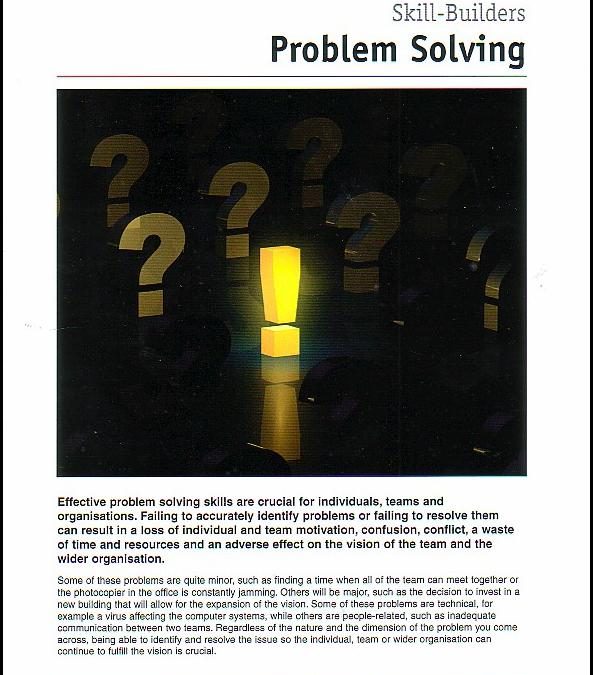
by Gary Reinecke | May 27, 2018 | Uncategorized |
I enjoy the memory of being 18 years of age in London, England and experiencing the Arsenal Football Club at the historic Highbury Stadium. The atmosphere during the matches was magical. What struck me most was the quality of the apprenticeship system that prepared players to advance to the highest level.
I’ve often asked myself, what if the local church took the challenge of developing leaders as serious as Arsenal took the challenge to develop home-grown talent? The impact for the Kingdom would be overwhelming. Some networks and churches are doing an extremely good job here. But this is an area that I believe we can improve on if we take the mandate to “make disciples of all the nations”, as Jesus intended.
InFocus has taken that challenge. In the Disciplemaking Collective we are seeing the fruit of intentional disciplemaking come to fruition. Now we are taking the next natural step – to help disciplemakers, plant churches. To accomplish this vision we’ve combined the expertise of a practicing church planter + a competent coach = a learning community. The synergy of the group experience with a coaching relationship has created an empowering experience. The relational dynamic and the learning that occur in the Collective has surpassed my expectations.
During the last 10 years I have been teaching church planting & multiplication, church health & leadership development in online environments. It was a bit clunky at first but once I learned the unique dynamics, rhythms and advantages of the online environment, I was convinced that adultly learning styles can be maximized in the online learning community, like a Collective. In fact, these learning communities can be leveraged to support leaders around the globe in ways that have not been possible in the past.
Who do you know that would benefit and contribute to a Church Planting Collective ?
I am expecting the Lord to bring the right leaders to the Church Planting Collective. Here are the two resources we will use to illustrate and facilitate the church planting process:
Attend a free webinar to hear an overview of the Church Planting Collective. Please indicate your availability by clicking here so that we can schedule the best time to meet as a group. Look forward to connecting with you!
Here is the Fall schedule for the group sessions:
- Session #1: September 10, 2018
- Session #2: October 8, 2018
- Session #3: November 5, 2018
- Session #4: December 3, 2018
*All times are: Mondays @ 3:30pm PST (4:30pm MST/5:30pm CST/6:30pm EST)

CHURCH PLANTER PATHWAY STORYBOARD

PARENT CHURCH PLANTING STORYBOARD

CHURCH PLANTER PATHWAY: COACHING GUIDE WITH STORYBOARD

PARENT CHURCH PLANTING: COACHING GUIDE WITH STORYBOARD

by Gary Reinecke | May 20, 2018 | Church Growth, Church Multiplication, Coach Training, Disciplemaking, Focused Ministry, Leader Development |
What lesson can we learn from the best coaches in the world?
What do world-class; truly world-class coaches do that set them apart?
Let’s take a look at the world of professional sports and assess what coaches at the highest level do that translates into the ministry world. For instance, take one of the most successful football coaches in European club football – Zinedane Zedane. Not only was he one of football’s greatest players of his generation; but now is approaching his team’s third European Championship in a row. A feat that has only been achieved by Bayern Munich from 1974-1976.
For our purposes, what can we extract from what Zedane does and apply that to how we approach disciplemaking and leader development?
First, Zedane understands the game.
Second, he knows his players.
Third, Zedane makes the right decisions at the right time.
I realize that I am making a leap to suggest that coaching in the sport’s context can have some relevance for coaching in a ministry context; but these are worth consideration.
Let’s take that third one today – Zedane makes the right decisions at the right time.
His knowledge of the game and innate understanding of his players feeds his masterful ability to make decisions that will advance his team odds of winning. Through a couple of key substitutions in the first leg of the semi-final against Bayern Munich, early in the game, the flow of the game changed. They were able to shore up their defense, build up play from the back, advance through the midfield and eventually score. This was not an accident, this was the result of a tactical change made by their coach, Zinedane Zedane.
This Saturday, May 26 we will see how Zedane matches up against his Liverpool counterpart, Jurgen Klopp (see COACHABILITY TRAIT #3 – SMART blog entry). Two extremely knowledgeable football minds with different approaches to the game. Zenedane makes tactical decisions during the flow of the game and Klopp is capable of making adjustments but is unable to alter his approach – all out attacking football. Mind you, this will be a clash of two similar but very distinct styles of play. Should be an exciting match.
What can we learn from Zedane as it relates to coaching in a ministry context? When coaching disciplemakers and leaders, it is imperative that we know when to allow the person to figure the problem out on their own vs. “fixing” or solving the problem for them. When a coach jumps in and fixes the problem it communicates: “I am smarter” than the person they are coaching. This strokes the ego of the leader and in most cases, undermines the development of the person and ultimately, dis-empowers them. But when the coach allows the person the time to reflect, expand their awareness and arrive at their own solutions, people tend to:
- Feel Empowered
- Own the Issue
- Take Action.
These are just some of the benefits of taking a coach approach with people you develop.
Here are three questions for your reflection:
- What has happened when you allow people time to process their thinking and arrive at their own solutions?
- What has happened when you have stepped-in to offer your solution?
- Which approach is more empowering?
Here are three coaching resources I have found helpful to increase your effectiveness as you coach a person to enhance their problem solving abilities:

by Gary Reinecke | May 13, 2018 | Coach Training, Disciplemaking, Leader Development, Uncategorized |
What lesson can we learn from the best coaches in the world?
What do world-class; truly world-class coaches do that set them apart?
Let’s take a look at the world of professional sports and assess what coaches at the highest level do that translates into the ministyr world. For instance, take one of the most successful football coaches in European club football – Zinedane Zedane. Not only was he one of football’s greatest players of his generation; but now is approaching his team’s third European Championship in a row. A feat that has only been achieved by Bayern Munich from 1974-1976.
For our purposes, what can we extract from what Zedane does that applies to how we approach disciplemaking and leader development?
First, Zedane understands the game.
Second, he knows his players.
Third, Zedane makes the right decisions at the right time.
I realize that I am making a leap to suggest that coaching in the sport’s context can have some relevance for coaching in a ministry context; but these are worth consideration.
Let’s take that second one today – Zedane knows his players. He knows their personality, strengths and weaknesses, what motivates and demotivates, how and when to challenge. What you also sense from Zedane is, he knows how hard to challenge to get the very best from his team.
When coaching disciplemaker and leaders, it is imperative that we know the people we are empowering. What I am suggesting is that we must know what makes a disciplemaker “tick” and how to help leader’s take that difficult next step in their development. Specifically a coach must know their:
- Personality
- Strengths and Weaknesses
- Motivator and De-motivators
These are just some of the complexities of the human beings that we are called to coach to make disciples and leaders.
Here are three questions for your reflection:
- What are the personality traits of the people you coach (for disciplemaking & leader development)?
- How do you challenge different people, differently?
- How do you motivate different people, differently?
Here are two coaching resources I have found helpful to help coach introverts and extroverts:
Coaching Introverts
Coaching Extroverts

by Gary Reinecke | May 6, 2018 | Church Growth, Coach Training, Disciplemaking, Leader Development, Personal Development |
What lesson can we learn from the best coaches in the world?
What do world-class; truly world-class coaches do that set them apart?
Let’s take a look at the world of professional sports and assess what coaches at the highest level do that translates into the ministry coaching. For instance, one of the most successful football coaches in European club football is Zinedane Zidane of Real Madrid. Not only was he one of football’s greatest players of his generation; but now is approaching his team’s third European Championship – in a row. A feat that has only been achieved by Bayern Munich from 1974-1976.
For our purposes, what can we extract from what Zidane does that applies to how we approach coaching disciplemakers and leaders?
First, Zidane understands the game.
Second, he knows his players.
Third, Zidane makes the right decisions at the right time.
I realize that I am making a leap to suggest that coaching in the sport’s context can cross-over to coaching in a ministry context. But aren’t these worth consideration?
Let’s take that first one today – Understands the game. Zidane knows what, how and when to makes adjustments so that his teams score, defend and close-out games. What you also sense from Zidane is, he knows how to handle defeat.
For instance, last week Real Madrird played Bayern Munich in the European Cup Semi-Final in a home and away series. In the first leg in Munich, Real Madrid went one goal down early in the match. Zidane made changes to the squad and they fought back, away from home and won the match, 2-1. In the home series it was Real Madrid that proved their superiority once again with a convincing win, thanks to a critical mistake from Bayern’s goalkeeper.
When coaching disciplemakers and leaders, it is imperative we understand the “game”. What I am suggesting is that we must understand the process of making a disciple; and the process of developing a leader; so that we will know how to help people:
- make adjustments
- do what is required to advance
- handle set-backs.
These are just some of the complexities of the “game” that we are asked to play as we coach disciplemakers & leaders.
Here are three questions for your reflection:
- What developmental process (disciplemaking & leader development) has worked for you in the past?
- How do you engage people in a developmental process?
- What would make the process reproducible?
I have found the two coaching resources below helpful to define the pathway for disciplemaking & leader development:
- Making Disciples Storyboard
- Leadership Multiplication Pathway







